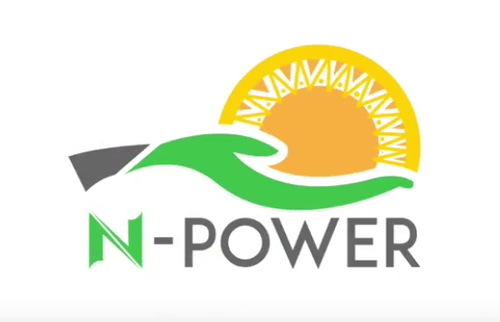N-Power: The little thing that matters
It is two years since the first batch of beneficiaries of the N-Power programme of the Federal Government were enrolled. And it has been a story of success. In a very long time, and perhaps, the very first time, a government social intervention programme is working seamlessly. Having witnessed how similar programmes were run by […]

It is two years since the first batch of beneficiaries of the N-Power programme of the Federal Government were enrolled. And it has been a story of success. In a very long time, and perhaps, the very first time, a government social intervention programme is working seamlessly.
Having witnessed how similar programmes were run by previous administrations, it becomes easy to compare and contrast. When the idea of N-Power was muted, it was no surprise that many people had misgivings about it.
Instructively, the right decision the Buhari-Osinbajo administration took was to shield N-Power and other social intervention programmes from politicians, both at the federal and state levels. Involving politicians as intermediaries in the scheme would have made it dead on arrival. Having noticed that they were edged out, our politicians, known for their anti-people tendencies, did not give up the fight to corner the programme to themselves or cause it to be abolished.
When it was time for the recruitment phase, another masterstroke decision was taken to make it fully online, without any third party intervention. It was very transparent as confirmed by countless testimonies from beneficiaries.
Staying far away from Nigeria, I applied for people who had no access to good internet, and majority of them are beneficiaries today. Those who discredited the programme and refused to apply are regretting their action. The online recruitment process also prevented politicians from harvesting from where they did not plant.
Today, about 500,000 qualified Nigerians are enrolled in the programme, with a steady flow of stipends without any interference. It is called alert. Many have built entrepreneurship from the alert and acquired skills, such that even after the expiration of their tenure in the scheme, they will sustain a continuous inflow of income. I have seen many people in the N-Agric programme display fishpond, fruits and vegetable farms, poultry farms etc, of their own. The scheme has helped to unlock talents and put many on the path of career. Besides the 500,000 beneficiaries, there are those in the N-Build, a sub category of the N-Power, who are being trained in trade and artisans’ skills.
The N-Power is a scheme with a difference. The provision of smart devices to beneficiaries enhances their service delivery and assists them in personal skills development. There are countless of testimonies available from beneficiaries, some of them very emotional on how the scheme has helped them move away from poverty line and bequeathed them with skills that will forever remain useful.
The scheme may have enlisted 500,000 Nigerians, but it indirectly caters for two million people or thereabouts. For every Nigerian who is an income earner, even a bachelor or unmarried woman, he/she has at least two other people directly under his or her responsibility. This is a fact in Nigeria that anyone can do research on.
Does the scheme solve the unemployment cum poverty problem? The answer is a definite no. However, it has cushioned the effect of the two and must be appreciated. The N-Power programme is the proverbial little thing that matters.
A. S. M. Jimoh can be reached on @[email protected] and on twitter @anehi2008
